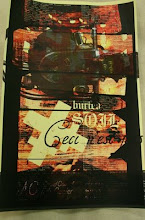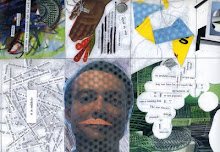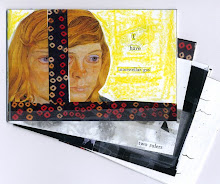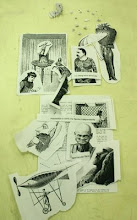
Last week, our students presented their first, longer-form artist-writer collaborations (images posted soon). One of the projects presented John McRae's poem of the Great War, "In Flanders Fields," in the guise of a videogame package. We got to talking about videogames' narrative potential and their intersections with art. In the course of this discussion, Chris mentioned a recent AV Club article on the graceful expressiveness of Atari cartridge packaging, from the late '70s and early '80s. The writer of the article, Nick Wanserski, contends that the contrast between the at-the-time crude game play and the elaborately conceived packaging artwork was richer and more complex than we in 2017 might acknowledge:
Back then, home video game systems were new and exciting. The Atari 2600, while not the first home console, was responsible for popularizing features that would become standard in these devices for the next 20 years. No kid was accepting an Atari for Christmas as a 30-year placeholder until Uncharted came out. The graphics were simple and borderline abstract, but they were also an experience unlike anything most households had ever seen. The box art was meant to coalesce that excitement into something tangible. A static screenshot from the game couldn’t possibly relate how dynamic the experience was to a neophyte audience. The impressionistic nature of the 2600’s graphics also allowed for ample interpretation of what that experience would resemble.Wanserski goes on to make a critique of more recent game packaging, the sort of which our students, in their "Flanders Field" collaboration, exploited.
This class conversation also included a brief mention of the spiritual implications of videogames. In a review of Kevin Schut's book Of Games and God: A Christian Exploration of Video Games, Gregory Perrault lays out Schut's premise, thusly:
For Schut, video games are a participatory, storytelling medium. Video games and the narratives they share deserve to be debated and discussed. They should neither be blankly accepted nor rejected. Video games are, as Calvin argues regarding all creation, glorious and fallen—they are both indications of the inherent goodness of humanity and yet simultaneously symbolic of humanity’s brokeness.Carly, one of the students who made the "In Flanders Field" videogame project, noted that she loves to read books, but that she's often as moved--if not more so--by a well structured video game than she is by something she's reading. Schut's book seems to agree, by rooting the resonance of game play in our spiritual identity.















































































No comments:
Post a Comment